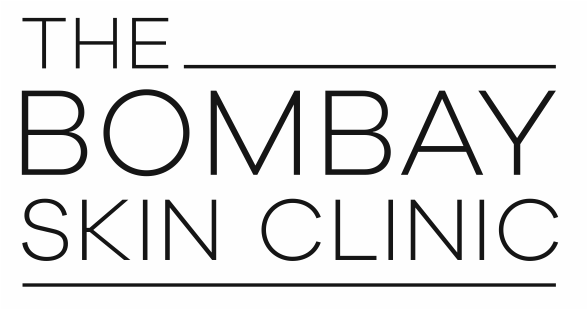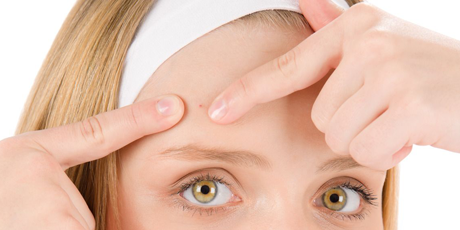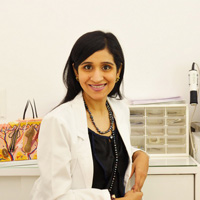Acne | Affected by Acne | How does one get Acne | Causes | Identify | Types | Side Effects | Treatment Options | Diy Treatment Tips
What is acne?
Acne is a skin condition where the oil glands that are present at the base of your hair follicles get blocked due to excess oil and dead skin. Acne is very common and causes spots normally called pimples or ‘zits’ and normally found on face, neck and back.
These may be whiteheads, blackheads and also inflamed pus-filled spots. There are many acne treatment options from oral medication to laser acne treatments to peels. The most commonly occurring acne is called ‘acne vulgaris’.
Many people affected by acne feel distressed, embarrassed and deeply hassled about it. Over-the-counter topical products may help for treating acne. If not, you must consult with your physician about acne treatments.
Who can be affected by acne & pimples?
Acne is commonly seen in the teenagers, older people also get it. Men and women, who may not have been affected by acne in their teens, are affected by it during their late twenties-thirties. Even children and babies seem to be affected by it. Though race does not seem to have a role, heredity contributes greatly to acne.
How does one get acne?
Skins types can be dry, oily, combination type or sensitive. Generally, with the onset of puberty, hormonal changes increase oil (sebum) secretion. When excess oil and dead cells clog the pores in the skin, acne occurs. Blackheads, whiteheads, papules, pustules or cysts form which can scar the skin.
Clogged pores can irritate the hair follicles present on the skin and can become inflamed with bacteria and become pus filled, swollen and red. Many a time pus-filled pimples and inflamed cysts can be very painful, hot and very tender. They may leave scars and need acne treatment.
What can aggravate acne?
The following triggers can precipitate an attack of acne.
- Hormonal changes connected with menstrual periods, birth-control tablets, pregnancy & stress
- Greasy/oily hair-care and cosmetic products
- Sweating
- Hot, humid climate
- Air pollution in large cities like Mumbai
- Some medications
- Seeking medical advice
What are the causes of acne?
Acne happens because of the excessive reaction of sebaceous glands to increased levels of hormones – especially testosterone. The extra sebum blocks the pores around hair follicles.
The dead skin cells which otherwise come to the surface of the pores routinely for shedding, get trapped inside the pores. A mixture of excess sebum and dead cell tissues block the pores and spots are formed in the form of whiteheads and blackheads.
Role of hormones
The number of instances where hormonal imbalance can cause this –
- During puberty, the hormone levels – especially testosterone levels are higher and excess sebum causes acne.
- Many women suffer from an acne attack just prior to their menstrual periods.
- Some women get this during early pregnancy.
- Men get this with overproduction of male hormones, androgens.
- Stress causes excessive production of hormone called cortisole causing more sebum.
Blocked pores & bacteria
The Propionibacterium acnes – known as acne bacteria exist in everyone’s skin – with or without acne. But when blocked/clogged pores have excess sebum build-up along with dead cells, this becomes an ideal bed for the multiplication of the bacteria causing pus-filled spots, inflammation, swelling and pimples. Blocked pores can be easily unblocked with a wide variety of acne treatments like exfoliation, extraction, skin care routinize etc.
Other related causes
- Hereditary – Acne runs in families but can be random and due to a number of other reasons too.
- Age related – During teenage years, in late twenties and early thirties as adult acne and even new-born babies suffer from this condition.
- Medicinal side effects – Medications like lithium, estrogen, phenytoin and corticosteroids can cause acne.
- Medical conditions – Acne can be caused by endocrine-related conditions like Cushing’s syndrome or Polycystic ovary syndrome.
- Weather – High humidity levels in coastal cities like Mumbai and excessive sweating can lead to breakouts.
- Food Intake – Chocolates, nuts and oily food intake are not proven to cause acne, but snacks high in refined sugars may cause an acne attack.
How to identify this condition?
Typically acne affected skin looks oily with red spots and pus-filled pimples. Whiteheads, blackheads and scars may also be present. You might notice yellow or cream-white pus spots which can look swollen, hot to touch, may burst discharging pus and crust over.
Sometimes they can heal and subside without bursting. You will generally notice the acne on your face, back, shoulders, upper arms, neck, chest, trunk, and buttocks.
Acne and dark spots happen and some can be deep, especially with nodules and cysts.
What are the types of acne?
There are commonly six types of lesions as below
- Blackheads – Caused by small-size black or yellowish pimples.
- Whiteheads – Acne spots which are firmer with a white center.
- Cysts – Large size pus filled lesions resembling boils – almost always cause scars and quite painful.
- Papules – Tiny pimples looking red and feel sore/tender.
- Pustules – Bumps with pus filled center with a white head like tip.
- Nodules – Painful and bigger, lumpy spots developing under the skin and hard to feel.
What are the grades?
- Grade I – Mild with just blackheads, whiteheads and some pimples without any inflammation.
- Grade II – Moderate with numerous blackheads, whiteheads and more papules and pustules.
- Grade III – Moderate to severe with widespread spots including nodules and painful, red and inflamed skin.
- Grade IV – Most severe with pustules, nodules and painful cysts with involvement of back, chest and shoulders etc; known as cystic acne.
What are the side effects of acne?
Though acne is not a life threatening condition, it has far reaching impact because of the very physical manifestations. The pimples and cysts even after healing leave scars not just on the skin but deep down psychologically also. This skin condition can cause
- Low self-confidence and little self-esteem.
- Depression leading to social isolation and suicidal tendency.
- Pigmentation, dark spots, coarse skin.
- Scars, pitting and craters.
Acne treatment options
Depending on the severity and history, your dermatologist will determine what treatment will work best for you. They may be
Systemic acne treatments
- Hormonal acne treatment therapies – These help control testosterone which triggers excess sebum
- Oral contraceptive tablets.
- Spironolactone.
- Estrogens/Progestins.
- Vitamin A capsules – This is anti-inflammatory, reduces sebum production, fights acne bacteria, clears epidermis and helps you get rid of acne.
Cosmetic treatments for acne removal
- Chemical skin peeling – The skin’s appearance can be enhanced with the help of chemical peels. For active lesions we use in our south Mumbai clinic a salicyclic peel or an azelic peel treatment which helps the active acne to settle and prevent from giving marks and scars.
- Jet Peel – It uses pressurized air to accelerate a jet of micro droplets which gently cleanse and exfoliate the skin. It helps to subside the active lesion.
- Microdermabrasion for scar removal – Our skin doctor in Mumbai will use a unique device to lightly scrub your facial skin to create a path for fresh, smoother layer of skin to restore the skin that’s been treated. In Microdermabrasion, fine exfoliating crystals are spattered on the skin. Its basically an exfoliation treatment which rejuvenates the facial skin and works best on conditions such as brown spots, dull skin and age spots.
- Photodynamic therapy with laser – This is a method that uses a photosensitizing drug to apply laser light therapy preferably to kill pre-skin cancer & sun damage A line-up of treatments can put acne into suspension for months and also altering some marks without taking oral medications. Hence the results achieved are faster when used with lasers and is an effective acne treatment option.
- Light therapy – Laser or Light therapy treatment is a non-invasive procedure that uses light energy to repair and regenerate damaged skin. This procedure has various benefits like getting rid of acne, improved immune response, reduced inflammation, improved circulation and many more.
- Laser skin resurfacing – This removes the skin layer by layer with precision. The new skin cells that form during healing give the skin a tighter, younger looking surface.
- Cortisone injection of cysts.
- Filling of pit-like scars with soft tissue augmentation.
For a comprehensive acne plan book an appointment with the best skin specialist in Mumbai Dr. Batul Patel. Our medical director will do a detailed examination of your condition and understand the root causes for your acne.
We might recommend you to do some blood tests to further investigate the condition. Based on this we will give a comprehensive prescription including medications, products and treatments will be given to get rid of acne.
Simple diy acne treatment tips
Keep the skin clean
- Wash your face twice daily and after exercise.
- Use lukewarm and not very hot water.
Be gentle on the skin
- Avoid scrubbing the skin specifically the over the pimples.
- Avoid irritating the skin.
- Avoid touching your face, or pimples.
- Use fingertips or mesh sponge while cleansing.
- Stay away from direct sun.
Use appropriate cosmetics for treating acne
- Use gentle, non-drying non-abrasive cleansers.
- Use non-comedogenic water-based creams.
- Use alcohol-free cosmetics specifically on your pimples.
- Avoid oil-rich cosmetics/creams and hair products.
- Avoid exfoliants, toners and astringents that irritate the skin.
Keep hair clean
- Shampoo regularly if you have oily hair.
- Keep hair free of dandruff.
- Keep hair away from your face.
Acne can psychologically impair with physical scarring and social isolation, but with correct and methodical acne treatment, it can be controlled and cleared successfully.
Hence when your acne makes you feel unhappy, shy and self-conscious, it is time to seek medical attention.


 Dr. Batul Patel is a celebrity dermatologist and the medical director of The Bombay Skin Clinic an award winning clinic located in South Mumbai & Bandra. She is a passionate and dedicated dermatologist with expertise in all fields of dermatology, trichology and aesthetic dermatology. She has been practicing for more than a decade. Her range of expertise include emsculpt NEO, coolsculpting, fillers, acne treatment, lasers, skin rejuvenation, hair loss, hair transplant, PRP & pigmentation treatments.
Dr. Batul Patel is a celebrity dermatologist and the medical director of The Bombay Skin Clinic an award winning clinic located in South Mumbai & Bandra. She is a passionate and dedicated dermatologist with expertise in all fields of dermatology, trichology and aesthetic dermatology. She has been practicing for more than a decade. Her range of expertise include emsculpt NEO, coolsculpting, fillers, acne treatment, lasers, skin rejuvenation, hair loss, hair transplant, PRP & pigmentation treatments.